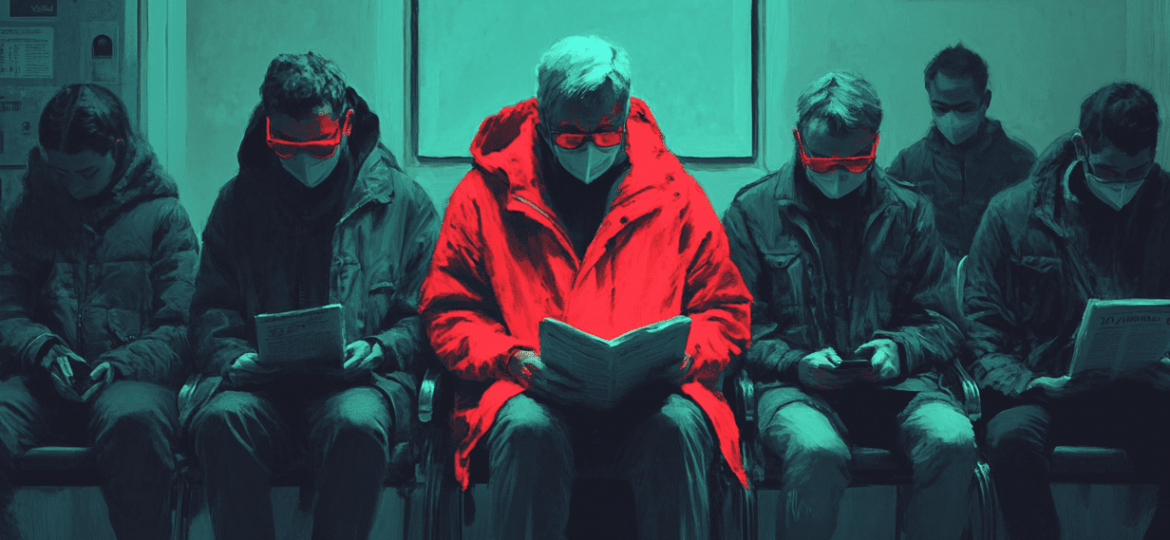
More than half of the respondents (53%) surveyed in the recently published wave of the CEDMO Trends survey believe the increase incidence of the whooping cough across the Czech Republic is due to the migration wave from Ukraine and most of the infected are refugees from Ukraine. This false information was encountered by 40% of the Czech population, with 6% not only registering it but also actively spreading it. These findings emerged from our longitudinal panel research CEDMO Trends CZ.
The arrival of refugees in connection with the war conflict in Ukraine is considered one of the major problems of the Czech Republic by 67% of the population over the age of 16. It was described as the most serious problem in the Czech Republic by 7% of respondents. “The topic of refugees from Ukraine is a frequent topic of false narratives that actually blame Ukrainians for spreading contagious diseases. They are building on the relatively lower vaccination rate in Ukraine but ignoring the fact that there have been several vaccination campaigns aimed at refugees in the Czech Republic,” says Petr Gongala from the Demagog.cz platform, which has been verifying the accuracy of information since 2012 and has been a member of the CEDMO consortium since 2021.
Awareness of current health disinformation narratives

Graph 1: Survey question: “To what extent are you aware of the following news or information?”, N=2,726, Source: CEDMO Trends wave 16
CEDMO Trends data analyst Lukáš Kutil adds: “In the case of the disinformation narrative regarding the occurrence of whooping cough, we recorded not only a high reach — 40% of people noticed it, but also a high credibility — 53% of all respondents considered it credible. Credibility increased with the age of the respondents. While 37% of people among the youngest considered it credible, it was up to 60% among the oldest.“
The credibility of current health disinformation narratives

Graph 2: Survey question: “To what extent do you consider the following reports to be unreliable or credible?”, N=2,726, Source: CEDMO Trends wave 16
“In the last six months, the number of people who perceived disinformation media content that manipulatively questions the role of the aggressor and defender in the context of the ongoing war, or falsely attributes negative qualities and actions to Ukrainians, has been steadily decreasing. At the same time, in the last six months, there has been an increasing number of people who, consider factual news about Ukraine to be disinformation in the sense of ‘Western propaganda’,” Lukáš Kutil interprets the current development trends, adding: “Half of Czechs say that they have a problem recognizing the accuracy of news about Ukraine that reaches them from the media.”
Twelve percent of respondents encountered false claims in the month preceding the survey about the connection between mammography screening of the female breast and tumour growth and the spread of metastases. The report also claimed Switzerland was the first country in the world to ban mammography examinations due to the high (more than half) proportion of false positive results. This false narrative was described as credible by almost a quarter of CEDMO Trends respondents (23%).
Professor Vanda Boštíková, Vice-Rector of the University of Defence for Scientific and Expert Activities, who has been analysing disinformation and misinformation in the field of biomedicine for CEDMO for a long time, says: “The narrative according to which mammograms do more harm than good first appeared in 2016, in the Romanian media. Coincidentally, it is Romania where breast cancer is one of the most common causes of death in women. According to the World Health Organization, this diagnosis accounts for 16% of the total number of new cancer diagnoses each year. According to several false claims circulating on social networks, during a mammogram, healthy, very sensitive mammary gland tissue is bombarded with radioactive radiation, which stimulates tumor growth and the spread of metastases. The opposite is true — the radiation dose used in mammography is very low, comparable to the dose used in dental X-rays. Exposure to this radiation is not dangerous and cannot cause cancer.”
Among other health disinformation that has been spreading in the public space in recent weeks, the fact-checkers of the CEDMO hub have captured the following message:
- The World Health Organization (WHO) and the European Union have concluded a pandemic treaty that gives the WHO the power to enforce mandatory vaccination and mandatory quarantine in the event of pandemics.
(registered by 10% of respondents, considered credible by 31% of respondents)
- Japan has issued a formal apology to people for being vaccinated against COVID-19. According to the Japanese government, vaccinated people are now experiencing a period of increased incidence of cancer, heart attacks and strokes.
(registered by 10% of respondents, considered credible by 24% of respondents)
- The German government has admitted that there was no COVID-19 pandemic in 2021-2022. It was a psychological operation to test the public’s permissiveness to the mRNA vaccine and quarantine.
(registered by 6% of respondents, considered credible by 15% of respondents)
